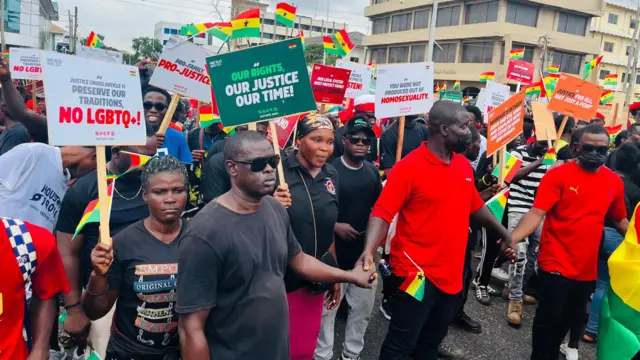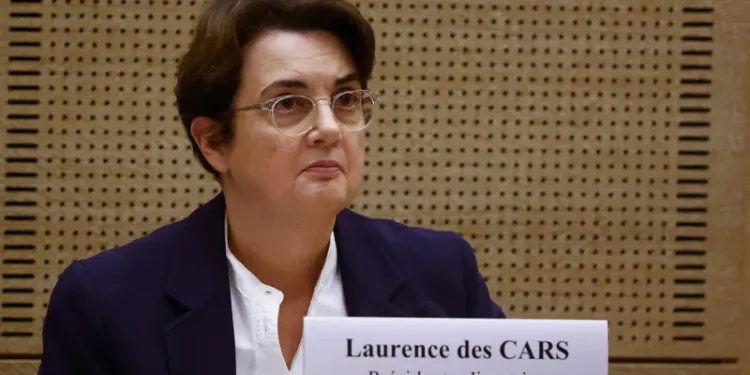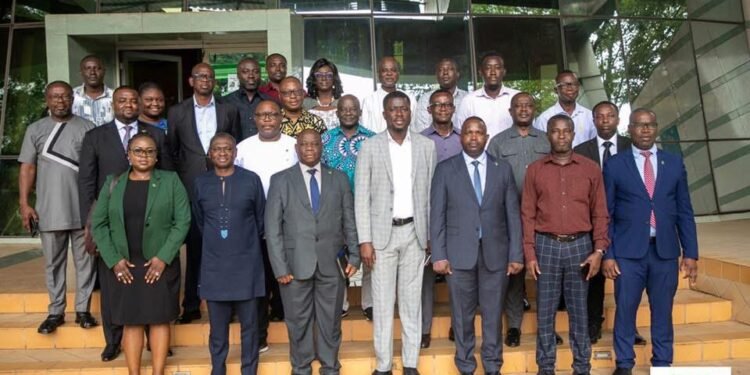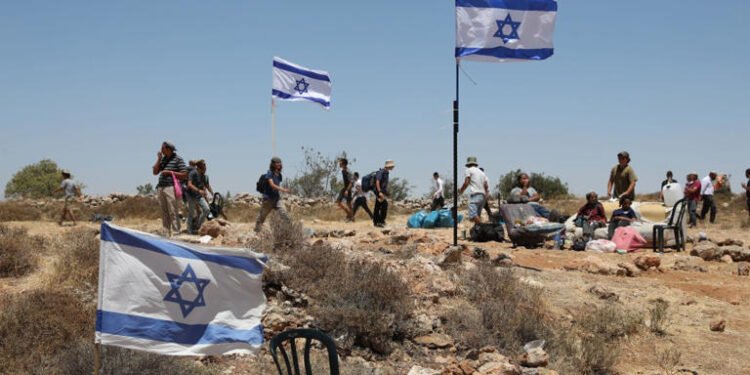The Forestry Commission (FC) of Ghana recently welcomed a high-level delegation from Zambia on a learning visit.
The Zambian team, led by Brigadier-General Chishala Mulenga, sought to gain insights into Ghana’s successful approaches to forest governance and strategies for combating the scourge of illegal mining, or “galamsey,” within the country’s forest reserves.
In a move to foster international cooperation and share best practices in sustainable natural resource management, the Ghana Forestry Commission has disclosed to its counterpart’s delegation from Zambia how the activities of illegal mining are heavily impacting the Country Forest reserves.
The presentations by Mr. Yaw Kwakye, Director of Operations for Natural Forests, FSD, “highlighted the severe threat of illegal mining (galamsey) within Ghana’s forest reserves”.
“He revealed that 45 out of 288 reserves have been affected, with nine facing critical degradation. He cited inadequate regulation of equipment (particularly excavators), abuse of mining permits, and weak enforcement capacity as key issues in dealing with “galamsey”. According to him, 845 arrests were made, but only 35 led to successful prosecutions between 2023 and 2024, , underscoring the need for judicial reform.”
Forestry Commission
The visit also provided an opportunity for the Forestry Commission to share its remarkable accomplishments despite the persistent challenges it faces.
Mr. Kwame Agyei, the Manager of Plantations Investment at the Forest Services Division (FSD), highlighted Ghana’s landmark status as the first African country and second globally to have issued Forest Law Enforcement, Governance and Trade (FLEGT) licenses, ensuring that timber exports to the EU meet strict legal standards.
Mr. Agyei further shared the stride in ecotourism and conservation, citing 374,311 visitors to FC-managed sites and the establishment of 9,707 hectares of new forest plantations.
Additionally, he referenced the Emission Reductions Purchase Agreement with Tullow Oil, a strategic REDD+ initiative aimed at offsetting 600,000 tonnes of carbon annually.
Illegal Mining in Ghana’s Forests

The Forestry Commission’s presentations which highlighted the severe threat posed by “galamsey,” within country’s forest reserves.
As Mr. Yaw Kwakye, the Director of Operations for Natural Forests at the FSD, revealed, inadequate regulation of equipment, abuse of mining permits, and weak enforcement capacity are key issues in dealing with this persistent and long-staggering problem.
Addressing the Zambian delegation, Mr. Kwakye also outlined the ongoing government-backed initiatives to combat illegal mining menace, including the deployment of security forces under the National Anti-Illegal Mining Operations Secretariat (NAIMOS), the formation of the Blue Water Brigade, proposed special courts for illegal mining, increased funding, and greater involvement from civil society.
Commission’s Mandate and Initiatives
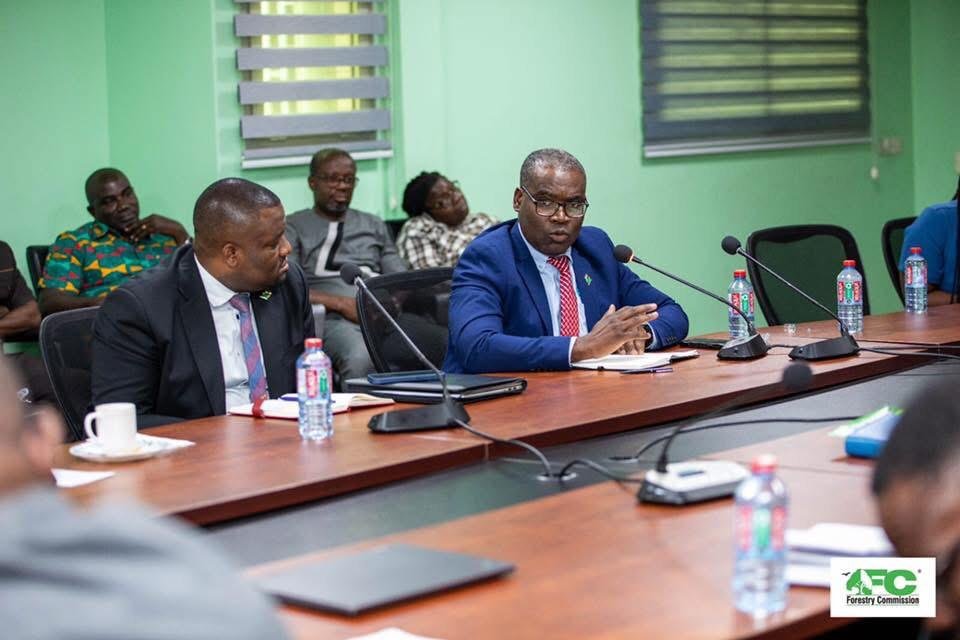
Established in 1999, the Forestry Commission of Ghana is the main agency responsible for the management and regulation of the country’s forest resources.
The Commission’s mandate includes the development, conservation, and sustainable management of Ghana’s forest and wildlife resources, as well as the coordination of policies related to these resources.
Over the past years, the Forestry Commission has undertaken several initiatives to address the challenges facing the forestry sector.
These include the promotion of sustainable forest management practices, the establishment of forest plantations, the strengthening of law enforcement, and the engagement of local communities in the management of forest resources.
Cooperation and Knowledge Sharing
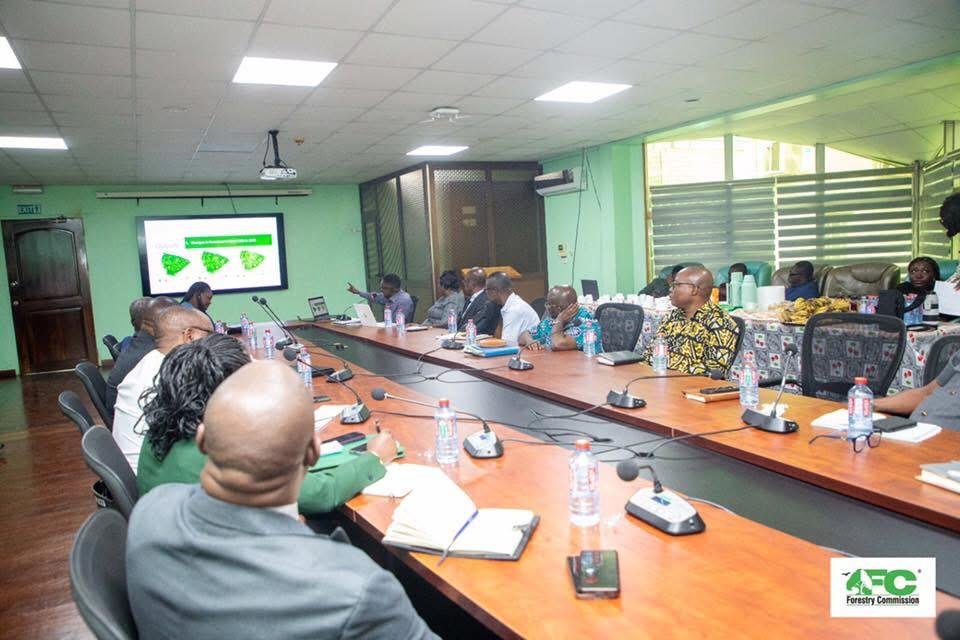
The Zambian delegation’s visit underscores the Forestry Commission’s commitment to fostering international cooperation and knowledge sharing.
As the Acting Deputy Chief Executive, Mr. Elikem Kotoko, expressed, “We welcome the Zambian officials and express hope that the engagement would foster stronger bilateral cooperation and yield practical insights.”
The open discussions and knowledge exchange during the visit provided a valuable platform for the two countries to learn from each other’s experiences and explore potential areas of collaboration. By sharing their successes and challenges, the Forestry Commission of Ghana has demonstrated its willingness to contribute to the global effort in sustainable natural resource management.
Challenges in Forest Governance
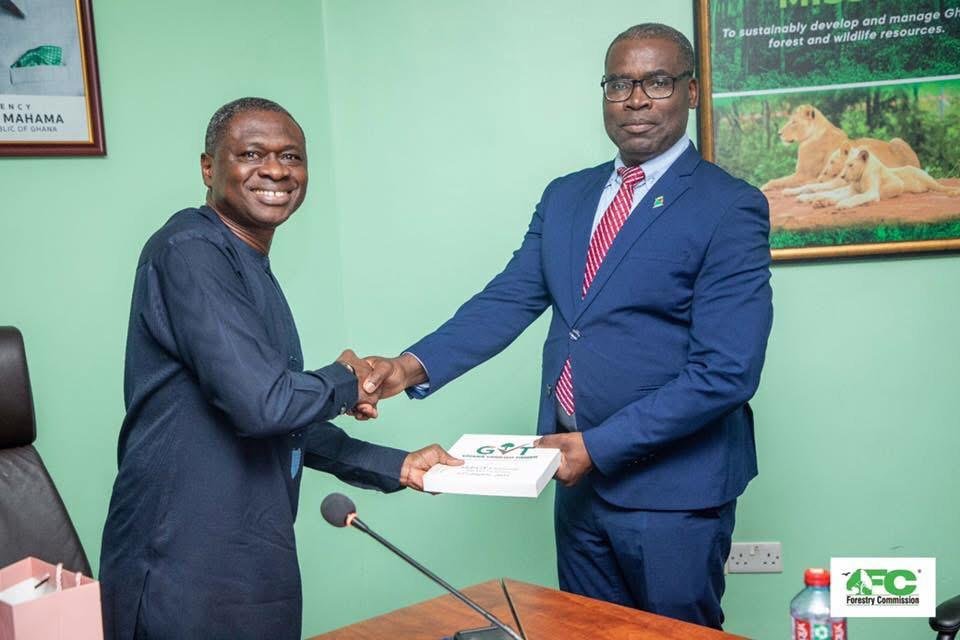
Despite the Forestry Commission’s achievements, the visit also highlighted the persistent challenges the agency faces, particularly in addressing the scourge of environmental terriorism.
These challenges underscore the complex and multifaceted nature of forest governance, where legal, regulatory, and enforcement mechanisms must be strengthened to effectively combat illegal activities and protect the country’s invaluable natural resources.
As Ghana and Zambia continue to navigate the complexities of natural resource management, the Forestry Commission’s willingness to share its experiences and learn from its counterparts in Zambia represents a crucial step towards fostering regional collaboration and finding sustainable solutions to shared challenges.
This exchange of knowledge and best practices will undoubtedly contribute to the broader efforts to safeguard Africa’s forests and promote a greener, more resilient future.
READ ALSO : ORAL Gains Momentum as Seven Major Corruption Investigations Completed










